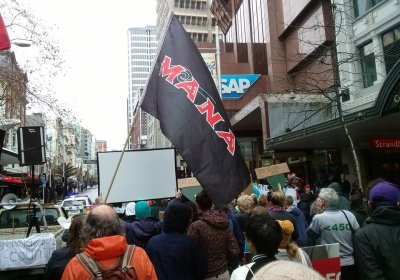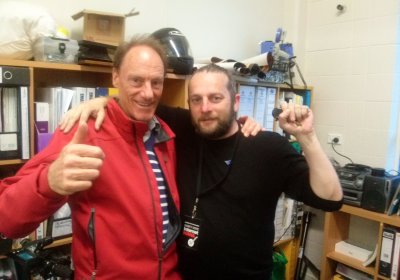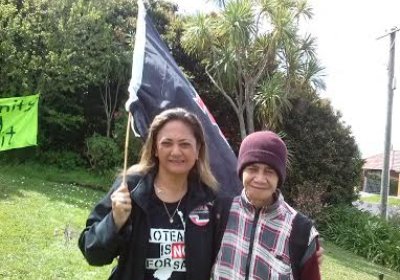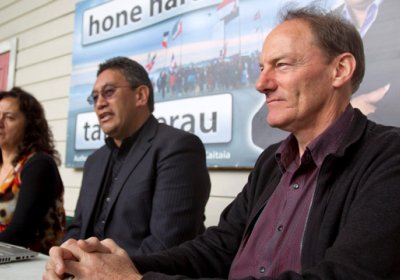There were huge protests against the Trans-Pacific Partnership held across New Zealand on August 15. About 10,000 protesters marched in Auckland, 5000 in Wellington, 4000 in Christchurch and thousands more in other parts of the country.
Aotearoa New Zealand
New Zealand's Unite Union, which organises fast food, hospitality and retail workers, announced a big win on May 1 with McDonald's finally agreeing to join Burger King and Restaurant Brands and cease using controversial “zero hour” contracts.
Striking McDonald’s workers took part in marches and pickets in Auckland, Palmerston North, Wellington, Christchurch and Dunedin on April 15, with many speaking to the crowds and media about the hardship of living with insecure work and income.
Laila Harre, the leader of the newly formed Internet Party, told a September 16 stop-work meeting in west Auckland organised by the FIRST and Unite unions, that state spying was not due to concerns about terrorism, but to target people who “organise for change”.
Immediately after the September 15 “Moment of Truth” public meeting — in which NSA whistleblower Edward Snowden exposed John Key’s National Party government complicity in the wholesale, and illegal, surveillance of New Zealanders — Internet MANA candidate in the September 20 elections, Joe Carolan, spoke to Green Left on the meeting’s significance.
Auckland Town Hall was packed to overflowing on September 15, with almost 2000 people. They heard US National Security Agency (NSA) whistleblower Edward Snowden present new evidence that the New Zealand government has been collaborating with US authorities to carry out wholesale surveillance and data collection on NZ citizens.
- Previous page
- Page 5
- Next page









